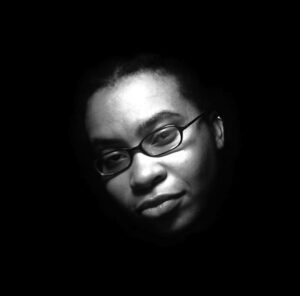A Point of Pride: Interview with Tenea D. Johnson


Tenea D. Johnson is a multimedia storyteller, musician, editor, arts & empowerment entrepreneur, and award-winning author of 7 speculative fiction works, including 2021’s releases, Frequencies, a Fiction Album and Broken Fevers, of which Publisher’s Weekly wrote “the 14 hard-hitting, memorable short stories and prose vignettes in this powerhouse collection … are astounding in their originality” (starred review). Her debut novel Smoketown won the Parallax Award for excellence in a speculative fiction work by a person of color while R/evolution earned an honorable mention that year as well. Her virtual home is teneadjohnson.com. Stop by anytime.
What inspired you to start writing?
I was always compelled. It would have been unnatural not to write and whenever possible I follow my nature.
What was it about the horror genre that drew you to it?
The possibilities, as always. Sometimes what stories explore makes some people uncomfortable. At times that productive discomfort is the point, but at others it’s just that the reality being presented is inherently unpleasant. I think of my work as more psychological or thrilling. I grew up watching a good bit of supernatural horror and probably watch and read more varied horror today. For me it’s the unflinching and unexpected work that stays with me. That’s what I try to create.
Do you make a conscious effort to include LGBTQ characters and themes in your writing and if so, what do you want to portray?
I strive to make my worlds realistic, even when they’re fantastic; that’s the conscious effort. I’ve never doubted that LGBTQIA+ folks and POC are required for reality— as are all kinds of groups that have been marginalized over the years. And our perspectives are required. Honestly, because of that lack and superficial portrayals, those perspectives can play as more interesting because it’s fresher territory. Literature to some extent is about universals but it’s the particulars that make any work shine; that certainly includes particular perspectives that are shaped by culture and one’s position in it. Because we live in cultures with such stark striations between “majority” and “minority” (which are/were usually just justification for lacking a fuck, if I can be frank, about “others”) and that have often been so wrapped up in heteronormativity and rigid gender roles and dynamics, fully developed, well-rendered diverse LGBTQIA+ characters are sorely needed and enthralling.
I want to create such characters by portraying the truth, the power dynamics and possibilities, the tenderness and, at times, the terror.
What has writing horror taught you about the world and yourself?
I believe that we get through things, not over them. The way through usually involves trials and tribulations. Hope can be twisted and at times you find flecks of it in the most unexpected places.
For better or worse, I picked that up just by being alive; writing horror has taught me that tools for progress abound; we just need to use them and know what we’re building or tearing down. Horror can be one of those tools.
Also I think there’s a need to be frightened or to stir things up. It’s part of the emotional palate, that, like bitterness in the culinary world, is often avoided but our experiences lack depth and complexity without it.
How have you seen the horror genre change over the years? And how do you think it will continue to evolve?
The horror publishing industry is paying more attention to different voices and some different stories. I hope it will continue to evolve; if not, it will die whether it knows it or not.
How do you feel the LGBTQ community has been represented thus far in the genre and what hopes do you have for representation in the genre going forward?
Often, poorly, especially in 20th century and earlier, as well as in mainstream movies. Of course, there’s always been good work; it just wasn’t very easy to find because great distribution comes with a certain kind of legacy publishing that may have been more interested in one-dimensional villains or stereotypical minor characters, but I do think that is changing at least a bit.
The majority of change is still in small press and indie work, I think, but larger publishers seem to have more of an appetite for well-developed LGBTQ protagonists.
I hope the opportunities for authors and audiences to find one another continue to expand. So my wish list is: more representation across the spectrum and more nuance, diversity, and depth.
I’d like to use representation as a starting point, not a destination.*
*This is me holding myself back from a tirade. You’re welcome.
Who are some of your favorite LGBTQ characters in horror?
I remain ever on the lookout for favorites, old and new. I intend to check out others’ answers to this and the next question, but I will say this: I think stories stay with me more than characters. I draw a similar blank when folks ask me about authors—which leads me to . . . .
Who are some LGBTQ horror authors you recommend our audience check out?
I’m reading some Carmen Maria Machado right now and enjoying that. (Can you tell? Short Stories for Life. Don’t get me wrong; novels are cool, but short shots, when well executed, get straight to the heart of things).
What is one piece of advice you would give horror authors today?
Be original. Develop your craft. Be unafraid.
And to the LGBTQ writers out there who are just getting started, what advice would you give them?
Stay true to your voice; honor it by working on your craft to articulate yourself exactly as you’d like and be very clear on what success means to you and how best to achieve it.
Be no one’s fool—not even your own.



